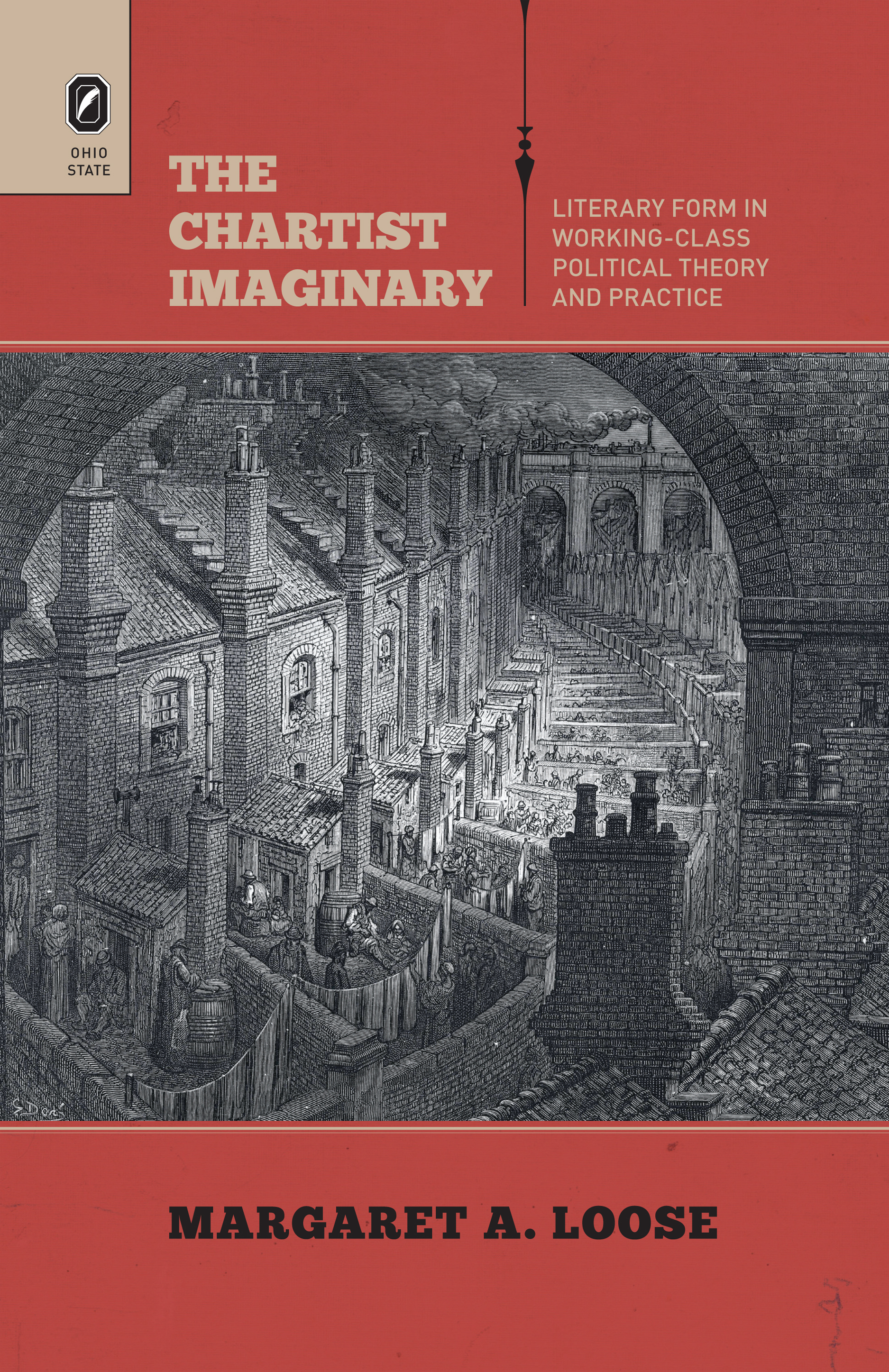The Chartist ImaginaryLiterary Form in Working-Class Political Theory and PracticeMargaret A. Loose |
 9/22/2014 Literary Criticism/European/English; Literary Criticism/Women Authors 185 pp. 6x9  $26.95 paper 978-0-8142-5283-3 Add paper to shopping cart Shopping Cart Instructions Review/Change Shopping Cart & Check-out | |||
|
Explore More |
“Margaret Loose’s book is the first study in several decades to do a close analysis of working-class literature of the 1830s and 1840s. Going beyond pioneers like Keating and Vicinus, Loose moves across genres in her analysis and incorporates formal as well as historicist methods. I especially appreciate the deftness with which she discusses internationalism and gender within the Chartist context. I believe The Chartist Imaginary will become a classic of Chartist studies and will be required reading for all who are interested in the complex literary culture that was emerging around the practices (and effects) of industrialization in England in the middle of the nineteenth century.” —Joseph W. Childers, University of California, Riverside “The Chartist Imaginary argues that to understand Chartism’s commitment to literature, one must be as attentive to the aesthetic as to the political dimension of the texts and that the importance of the aesthetic is best demonstrated by exploring both Chartist prose and poetry. Margaret Loose makes a number of original and important contributions to the existing critical debate in this field. For instance, the author superbly demonstrates the political work performed by the aesthetics of three women poets; the work on Elizabeth La Mont, in particular, is outstanding.” —Michael Sanders, University of Manchester Can imaginative literature change the political and social history of a class or nation? In The Chartist Imaginary: Literary Form in Working-Class Political Theory and Practice, Margaret Loose turns to the Chartist Movement—Britain’s first mass working-class movement, dating from the 1830s to the 1840s—and argues that, based on literature by members of the movement, the answer to that question is a resounding “yes.” Chartist writing awakened workers’ awareness of discord between professed ideals and reality; exercised their conceptual powers (literary and social); and sharpened their appetite for more knowledge, intellectual power, dignity, and agency in the present to fashion a utopian future. Igniting such self-respecting, politically transfigurative energy was a unique kind of agency Loose calls “the Chartist imaginary.” In examining the Chartist movement, Loose balances the nervous projections of canonical Victorian writers against a consideration of the ways that laborers represented Chartism’s aims and tactics. The Chartist Imaginary offers close readings of poems and fiction by Chartist figures from Ernest Jones and Thomas Cooper to W. J. Linton, Thomas Martin Wheeler, and Gerald Massey. It also draws on extensive archival research to examine, for the first time, working-class female Chartist poets Mary Hutton, E. L. E., and Elizabeth La Mont. Focusing on the literary form of these works, Loose strongly argues for the political power of the aesthetic in working-class literature. Margaret A. Loose is associate professor of British Literature at the University of California, San Diego. | |||

